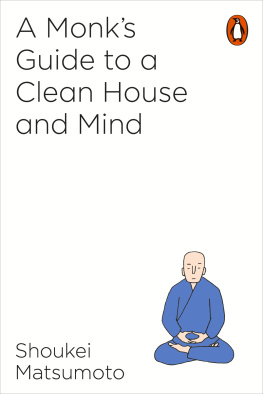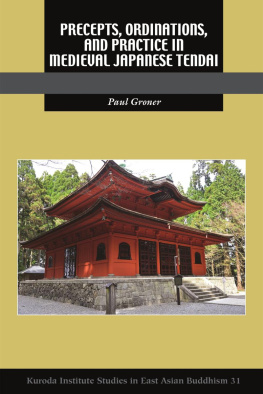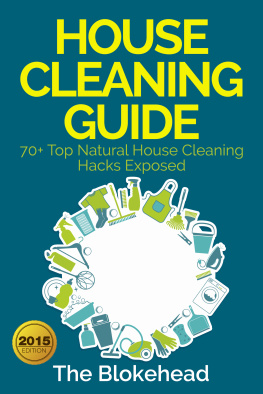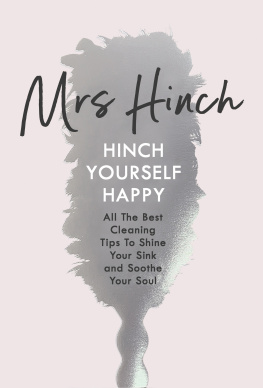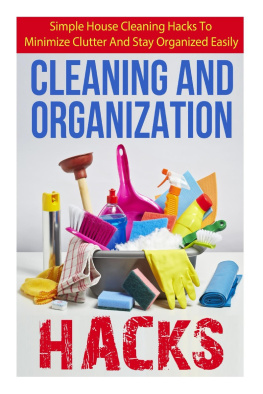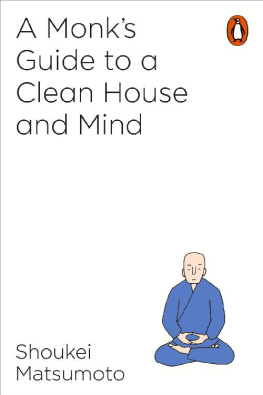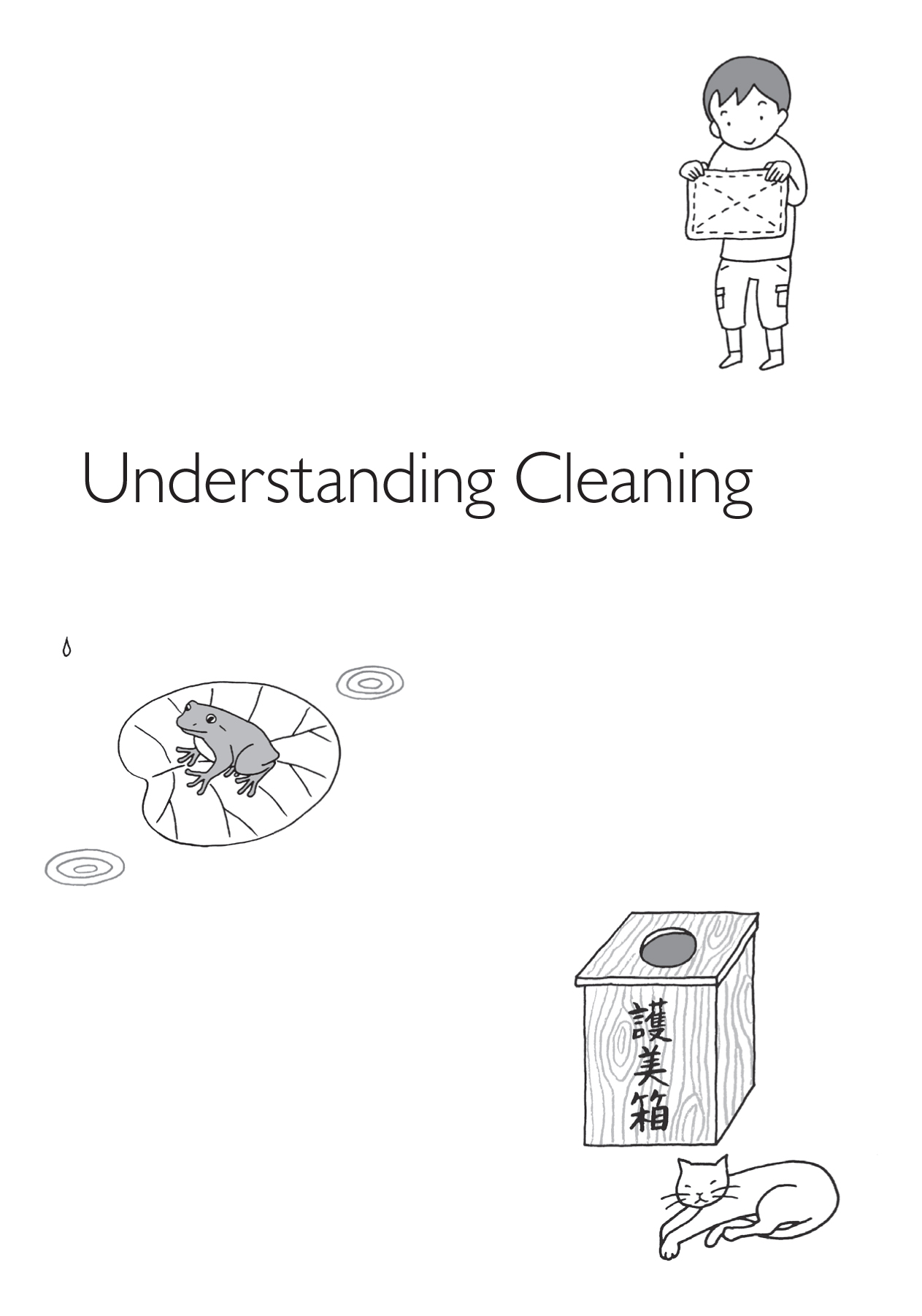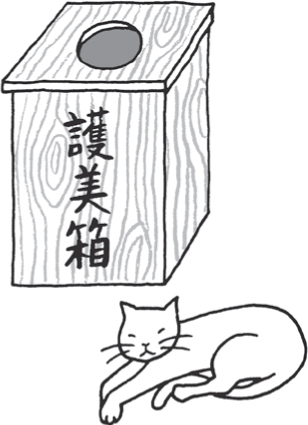A Monks Guide to a Clean House and Mind
Shoukei Matsumoto is a Shin-Buddhist monk and the representative of the Buddhist Youth Association of Komyoji. He graduated from Tokyo Universitys School of Religious Studies and completed his MBA at the Indian School of Business. Selected to attend the Forum of Young Economic Leaders in 2013, Matsumoto has created a temple caf and an online temple, Higan-ji, where he offers people a way to rebuild traditional Buddhism through new media.
Shoukei Matsumoto
A MONKS GUIDE TO A CLEAN HOUSE AND MIND
Translated by Ian Samhammer
Illustrated by Kikue Tamura
PENGUIN BOOKS
UK | USA | Canada | Ireland | Australia
India | New Zealand | South Africa
Penguin Books is part of the Penguin Random House group of companies whose addresses can be found at global.penguinrandomhouse.com.
First published by Discover 21, Inc. 2011
This translation first published in Penguin Books 2018
Copyright Shoukei Matsumoto, 2011, 2018
Translation copyright Ian Samhammer, 2018
Illustrations copyright Kikue Tamura, 2018
The moral right of the author has been asserted
ISBN: 978-1-846-14970-2
Introduction
Im a Buddhist monk at Komyoji Temple in Kamiyacho, Tokyo, Japan. I entered Komyoji Temple in 2003, becoming a monk in the Jodo Shinshu Hongwanji sect. A monks day begins with cleaning. We sweep the temple grounds and gardens, and polish the main temple hall. We dont do this because its dirty or messy. We do it to eliminate the gloom in our hearts.
When you visit a temple, you feel a blissful tension in the tranquil space. The gardens are well tended and spotless, without a single leaf on the ground. Inside the main temple hall, you naturally sit tall and feel alert. These things serve to calm the mind.
We sweep dust to remove our worldly desires. We scrub dirt to free ourselves of attachments. The time we spend carefully cleaning out every nook and cranny of the temple grounds is extremely fulfilling. We live simply and take time to contemplate the self, mindfully living each moment. Its not just monks who need to live this way. Everyone in todays busy world needs to do it.
Life is a daily training ground, and we are each composed of the very actions we take in life. If you live carelessly, your mind will be soiled, but if you try to live conscientiously, it will slowly become pure again. If your heart is pure, the world looks brighter. If your world is bright, you can be kinder to others.
The Zen sect of Buddhism is renowned for the cleaning practices of its monks, but cleaning is greatly valued in Japanese Buddhism in general as a way to cultivate the mind. In this book, I introduce everyday cleaning methods typically employed in temples, while sharing what its like to be a monk in training. Regarding Zen practices, I include information gleaned from discussions with Shoyo Yoshimura, a Soto Zen monk who promotes Zen vegetarian cuisine, and an unsui monk (Zen apprentice), Seigaku, who promotes Japanese Zen in Berlin, Germany.
I hope you enjoy applying the cleaning techniques introduced here in your home. Theres nothing complicated about them. All you need is a will to sweep the dust off your heart. Your everyday domestic chores will become a way to clean your heart. This will improve the condition not just of your own mind, but of the minds of the people around you. I hope readers will discover that daily housework is an opportunity to contemplate the self.
Shoukei Matsumoto
Komyoji Temple Monk
November 2011
What is Cleaning?
Japanese people have always regarded cleaning as more than a common chore. Its normal here for elementary and junior high school students to clean their classroom together, although Ive heard that this isnt done in schools abroad. It probably has to do with the notion in Japan that cleaning isnt just about removing dirt. Its also linked to cultivating the mind.
If you visit a temple, youll find the premises to be extremely well tended. Naturally, this is to welcome visitors, but another reason is that the act of cleaning is an important ascetic practice for the monks living and training there. Each space is cleaned, tidied and polished beautifully. While training at a temple in Kyoto, even the slightest error I made in folding or stacking clothes resulted in being given a pep talk by one of my seniors.
If you ever have the chance, observe how monks clean their temple grounds. Dressed in samue robes, the traditional work wear of Buddhist monks, theyll be silently engaged in their designated chores and appear cheerful and well. Cleaning isnt considered burdensome, or something you dont really want to do and wish to get over with as soon as possible. They say that one of Buddhas disciples achieved enlightenment doing nothing but sweeping while chanting, Clean off dust. Remove grime. Cleaning is carried out not because there is dirt, but because its an ascetic practice to cultivate the mind.
Rubbish
What is rubbish exactly? Things that are dirty, worn out, unusable, no longer useful, no longer needed, and so on. And yet nothing starts out as rubbish. Things become rubbish when they are treated as rubbish.
In Buddhism, it is believed that nothing has a physical form (tai). That is, there is no substance in anything in and of itself. Mottainai, the Japanese term for wasteful, originates from this word. But if something has no substance, how does it exist? Things exist because all things relate with each other to support each others existence. Humans are the same. The people and things in your life are what makes you who you are. This is why its not for you to judge whether something is useful, or to designate things you cant use as rubbish.
They say that the eminent monk Rennyo picked up a scrap of paper lying in the hallway one day and said, Even this scrap of paper is given to us by the Buddha and must not be wasted. The Japanese idea of not being wasteful is not just about avoiding waste it also embodies a spirit of gratitude towards objects.
People who dont respect objects dont respect people. For them, anything no longer needed is just rubbish. A child who grows up watching their parents act this way comes to perceive not just things but friends in the same way as well.
Within any object can be found the tremendous time and effort put into it the heart of the person who made it. Its important to remember to feel grateful for this when cleaning or tidying, and not handle things carelessly.
Yet we cannot store everything in a cupboard because we do not want to be wasteful. Some things, despite being a little old, still have some life left in them. Elsewhere, they would have a place to shine, but instead they are often shut away and forgotten, ending their lives without seeing the light of day. This is rather sad. Be grateful for the things that have served you and give them to people who could use them, where they can have a purpose and shine again. Appreciate the things you have right in front of you.

